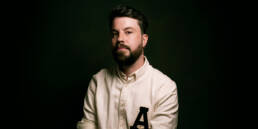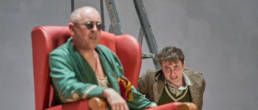
One of Samuel Beckett’s best works, Endgame is a delicious dark comedy about four people trapped in their own personal hells, waiting for the world to end.
Richard Jones’s revival features an ever brilliant Alan Cummings, coupled with and equally matched by Daniel Radcliffe’s surprising talent for physical comedy.
Endgame opens with Clov (Radcliffe) staggering in and out of the kitchen door into the empty sitting room, carrying around a stepladder and telescope which he needs to see out of the high windows.
Samuel Beckett’s stage directions are famously prescriptive, particularly in Endgame, a fact which can be observed promptly during the opening of the play. Clov’s precise pacing seems as if guided by an invisible breadcrumb trail, with calculated movements and gestures, way before he even gets to speak.
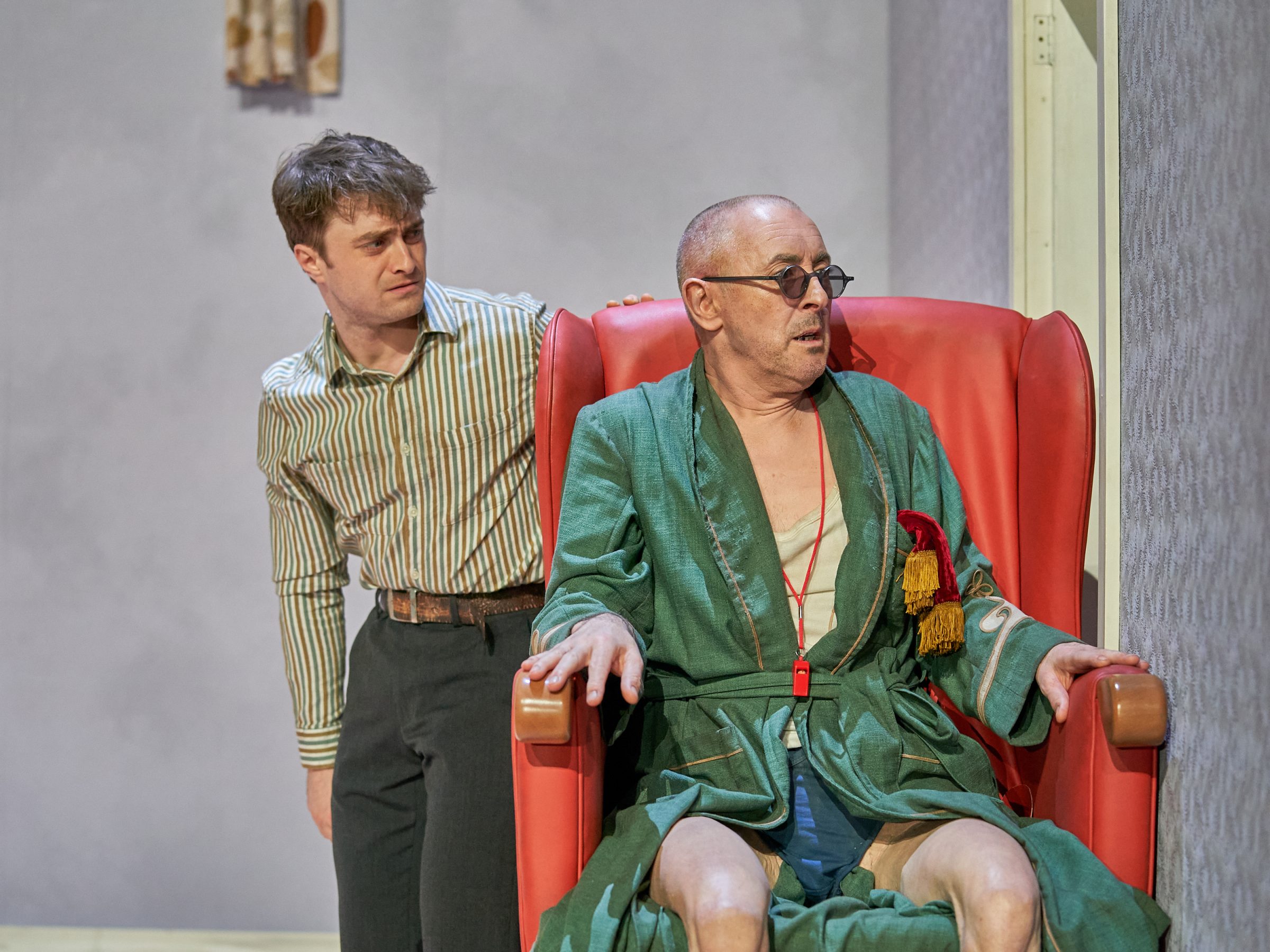 DANIEL RADCLIFFE AND ALAN CUMMINGS © MANUEL HARLAN, OLD VIC
DANIEL RADCLIFFE AND ALAN CUMMINGS © MANUEL HARLAN, OLD VIC
Hamm (Alan Cummings) is Clov’s blind and bitter master, confined to his armchair by his physical disabilities and contemplating the state of the world. His only weapons are the acidic remarks he tirelessly throws Clov’s way. Hovering above his humble servant like a toxic cloud, the maliciously witty Hamm rejoices in seeing Clov be consumed by his own inner turmoil, squashing every little bit of hope he has left inside. Neither of the two have any ounce of empathy for one another, and yet they can’t seem to escape their co-dependency.
Hamm’s old parents, Nagg and Nell, are living in dustbins, discarded like rubbish. They are thrown a hard biscuit from time to time at Hamm’s discretion. Karl Johnson and Jane Harrocks portray the couple superbly, mirroring their inner nobility and dignity despite the tragic circumstance.
Consumed little by little by their doomed fates, the four characters are all trapped in their own ‘private’ boxes: a cold and empty sitting room, a ‘ten feet by ten feet by ten feet’ kitchen, and two council wheelie bins.
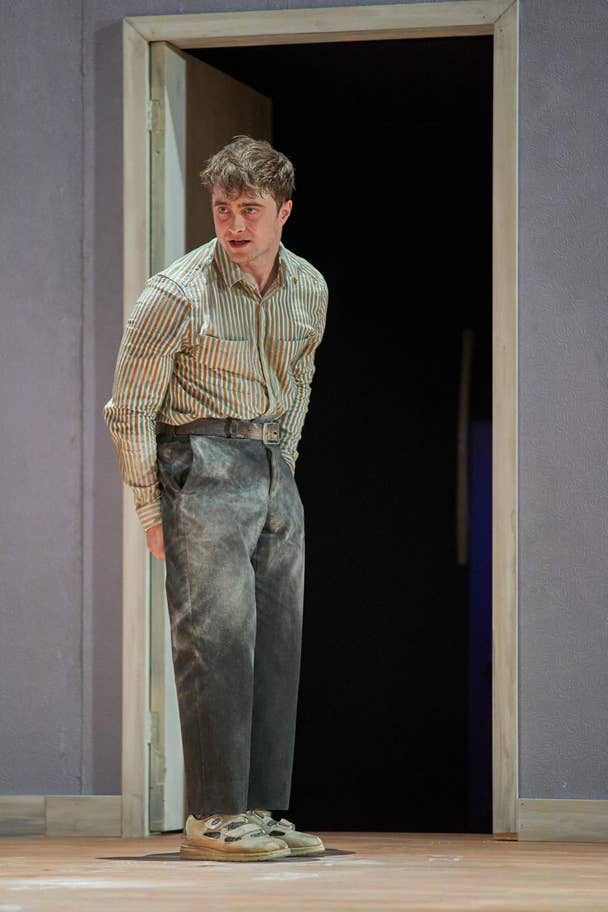 DANIEL RADCLIFFE AS CLOV © MANUEL HARLAN, OLD VIC
DANIEL RADCLIFFE AS CLOV © MANUEL HARLAN, OLD VIC
The ever faithful yet openly resentful Clov is the only character who still has a bit of fight in him and refuses to become complacent in this seamlessly hopeless and absurd end-of-the-world scenario.
In Beckett’s characteristic manner, the play unfolds in precise detail, painting an austere tableau of angst, hopelessness, and finality, only to be stripped away of all the unnecessary details towards the end, revealing the story’s despairing denouement. Moaning and declaiming, old man Hamm slowly heads towards delivering his final soliloquy.
Samuel Beckett’s Swiss watch instructional precision doesn’t leave room for the actors to feed off the audience’s feedback. In fact, Beckett, a master of strategically placed silent moments, incorporated three major pauses in the play, allowing for reflection and contemplation. And so, what begins as a rather comic absurdity, ends in the audience contemplating the bigger picture in life, through Clov’s acceptance of his long decided destiny.
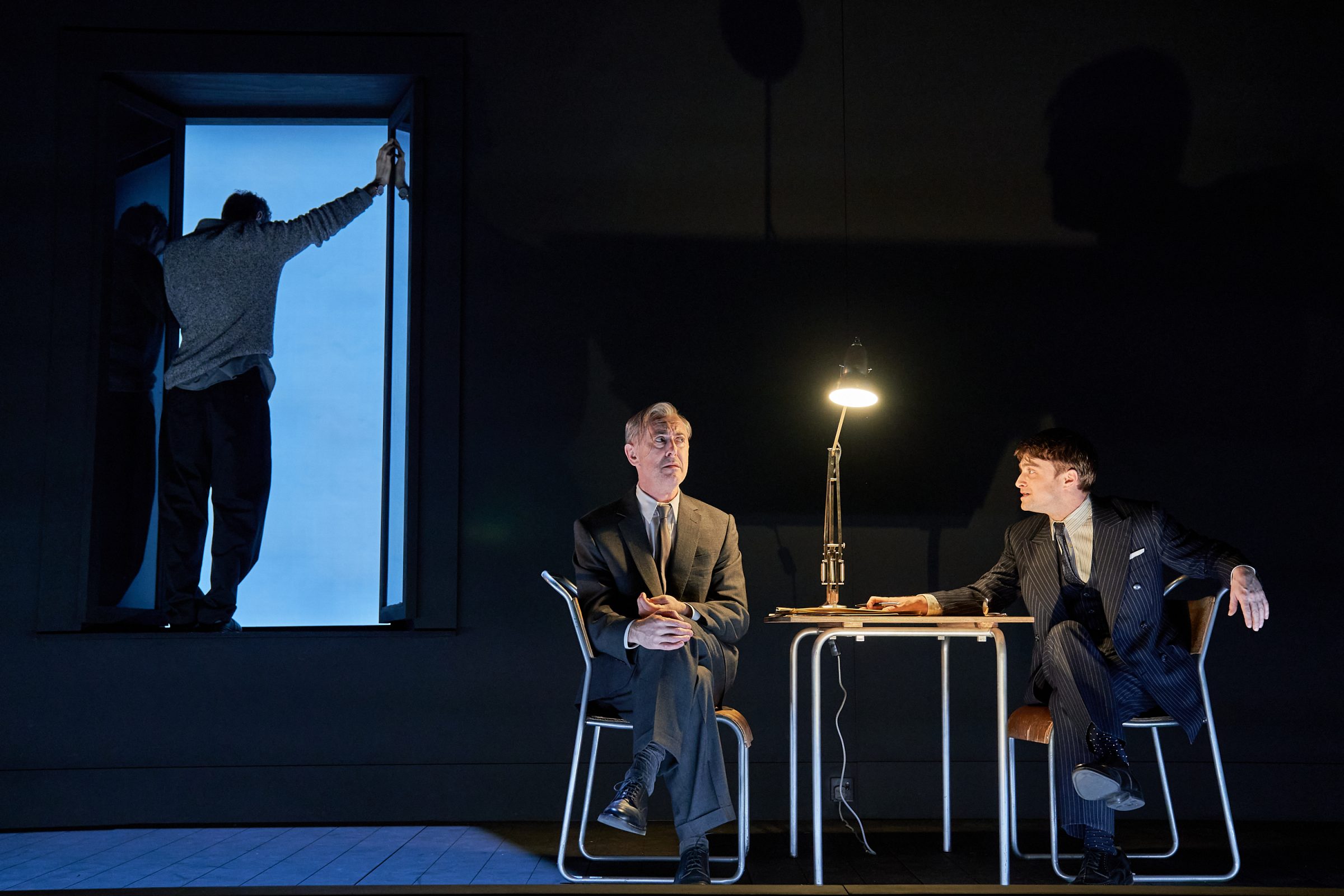 DANIEL RADCLIFFE AND ALAN CUMMINGS IN ROUGH FOR THEATRE II.© MANUEL HARLAN, OLD VIC
DANIEL RADCLIFFE AND ALAN CUMMINGS IN ROUGH FOR THEATRE II.© MANUEL HARLAN, OLD VIC
Curiously, Endgame was presented in a double bill with yet another work by Samuel Beckett, the rarely seen short play Rough for Theatre II. Although the latter softened the impact and gravity of Endgame, it was nonetheless an amusing affair about two apparent bureaucrats from the afterlife who are evaluating the life of a silent third character (Jackson Milner) as he considers to jump out of a window.
As strange as the choice may seem, one can’t ignore the strong connection between the two plays, as they both portray the degrading lives of a few human beings who were failed by society.
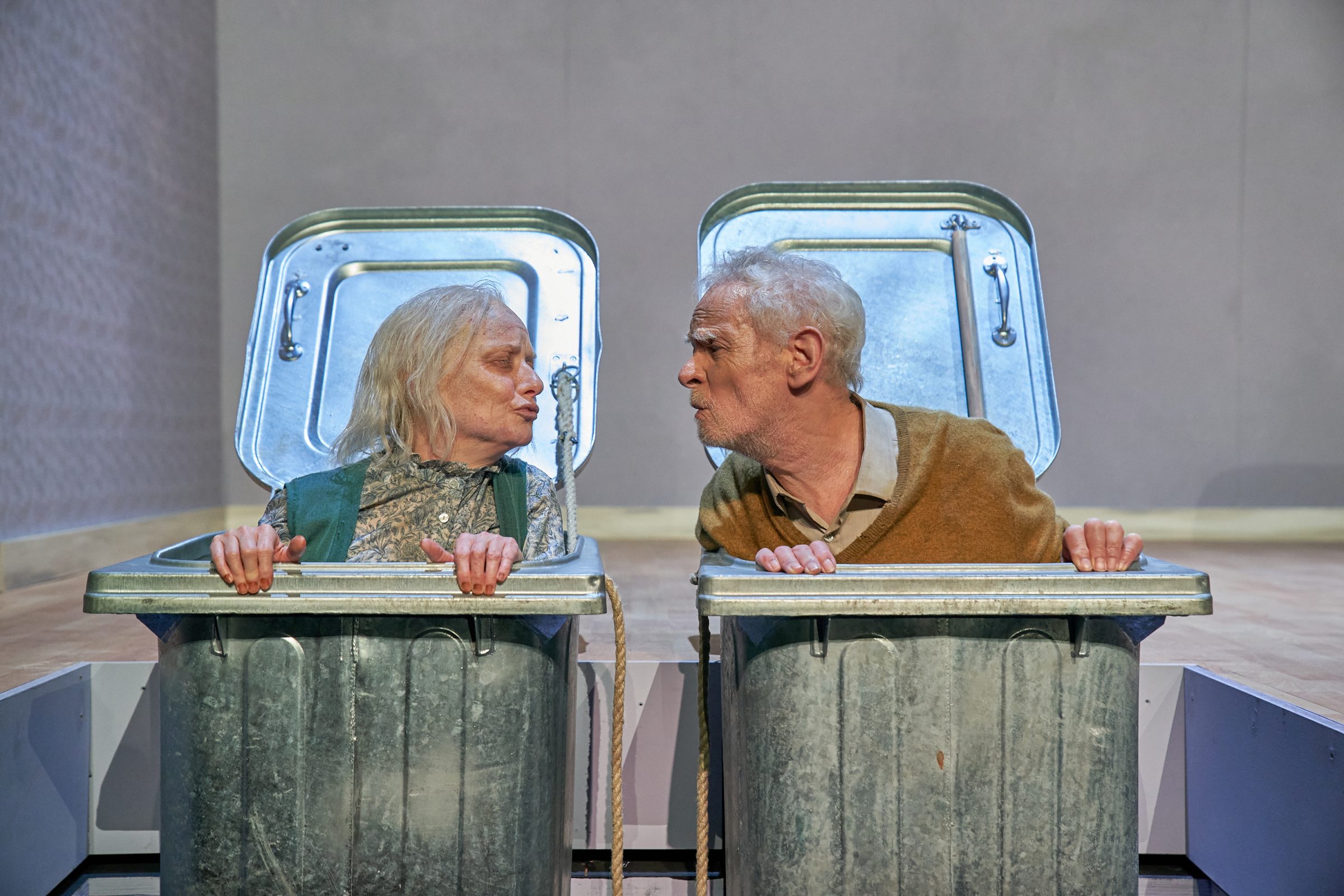 KARL JOHNSON AS NAGG AND JANE HARROCKS AS NEIL © MANUEL HARLAN, OLD VIC
KARL JOHNSON AS NAGG AND JANE HARROCKS AS NEIL © MANUEL HARLAN, OLD VIC
Although penned in c.1957 and c.1960 respectively, both Rough for Theatre II and Endgame are nothing short of contemporary and urgent. Current matters of depression, loneliness, lack of compassion, and environmental disasters are skillfully represented in these fatidic plays, brought to life in a new light by Richard Jones.
Even designer Stewart Laing’s choice to use wheelie bins for Hamm’s old parents represents a poignant metaphor for the way contemporary society treats its elderly.
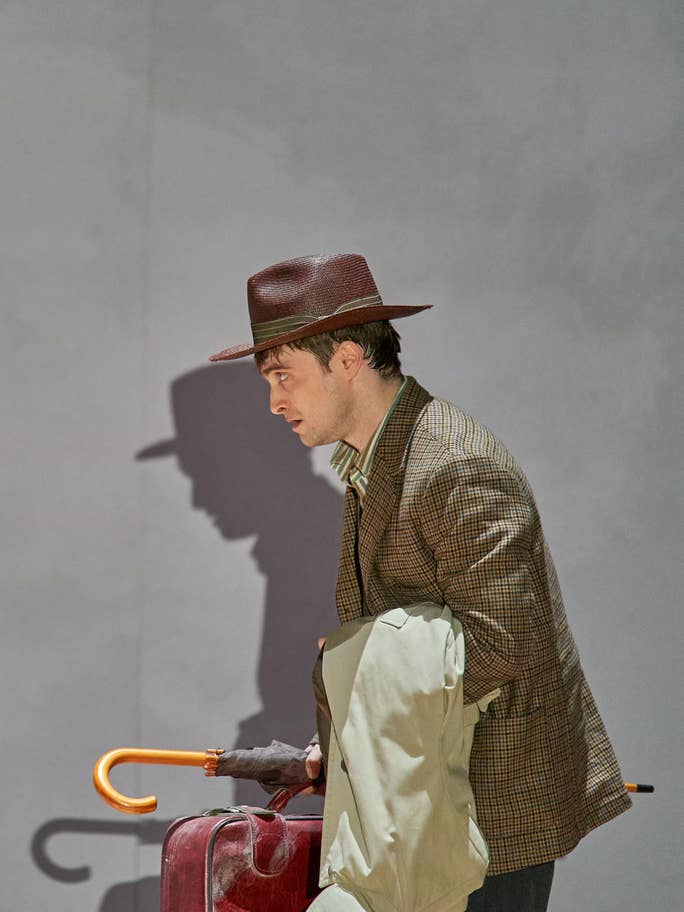 DANIEL RADCLIFFE AS CLOV © MANUEL HARLAN, OLD VIC
DANIEL RADCLIFFE AS CLOV © MANUEL HARLAN, OLD VIC
A noteworthy observation is Daniel Radcliffe’s laudable stagecraft. He has obviously worked hard to perfect his skills over the years and it shows, as Endgame is arguably his best stage performance yet. His versatility in switching between a rigid official to an anxious disabled servant is commendable. Not to mention the physical capabilities required by the play. Taking on challenging plays such as Beckett’s has been a surefire way to distance himself from the Harry Potter wizarding shenanigans that he is so strongly associated with.
Whether physical comedy is his newfound genre that he is most comfortable with or he has found the perfect formula to his stage performances, we thoroughly enjoyed Daniel in both plays and are looking forward to seeing more of him on stage in the coming future.
Stella Lungu
Stella is the Editor-in-Chief of The Cinematic Journal. She is also the Managing Director of Wolkh, a PR, Marketing and Branding agency specializing in Film, TV, Interactive Entertainment and Performing Arts.
An Interview with Anna Drubich
Anna Drubich is a Russian-born composer of both concert and film music, and has studied across…
A Conversation with Adam Janota Bzowski
Adam Janota Bzowski is a London-based composer and sound designer who has been working in film and…
Interview: Rebekka Karijord on the Process of Scoring Songs of Earth
Songs of Earth is Margreth Olin’s critically acclaimed nature documentary which is both an intimate…
Don't miss out
Cinematic stories delivered straight to your inbox.
Ridiculously Effective PR & Marketing
Wolkh is a full-service creative agency specialising in PR, Marketing and Branding for Film, TV, Interactive Entertainment and Performing Arts.

